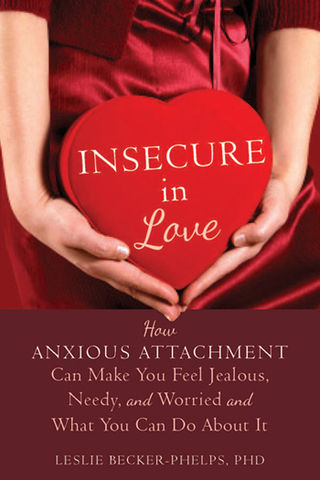Cognition
Don't Scratch That Itch! How to Stop Ruminating
Hold back from problematic thinking to let it pass.
Posted June 14, 2016

Everyone gets thoughts stuck in their minds, sometimes. You tell yourself to think of something else… anything else… but, like that rash you try to ignore, you just can’t help but scratch it – which, of course, just makes you itch more. When it’s a song, it’s just an annoying earworm. But when you keep replaying hurtful comments, embarrassing situations, or failures, it’s damaging.
Take Hector. He desperately wants to call his ex, who has dumped him in front of all his friends; or Janice, who faces recurring urges to buy that Burberry handbag or the latest cool gadget that is out of her price range. Thinking about it can feel like it’s driving you crazy, even if you don’t act on the thoughts. So, what can you do? How can you stop ruminating?
The simple – and ultimate – answer is to think about something else. But that’s not the full answer. If you could just stop, you would, but it’s not just one giant step. It’s a process. So consider these baby steps:
Observe thought: By watching yourself ruminate, you are getting some perspective. This gives you a chance to respond to this pattern rather than just be caught up in it.
Evaluate thought: If you think you need to make a change, then use this awareness to work through the issue. You might notice that you are ruminating about something you really need to take care of – such as concern about your performance at work because you are weak in a particular skill. In this case, it can help to focus your attention on what you need to do to improve your skill. Or, you might find that you are ruminating about something that’s an example of a bigger problem. Your work concerns might be less about weak skills and more about a broader pattern of self-criticism. In this situation, it’s best to turn your attention to learning to be more self-accepting. But it could also be that you simply need to move on – to stop scratching at the itch. Once you’ve figured out which it is, then you can move onto the next step.
1-2 punch: Remind yourself that all the time spent ruminating just means that you are just caught in a loop, and then seek out a distraction. Expect that the thoughts will return – and plan to distract again when they do. Repeat as necessary. Even if they never go away completely, with time, the thoughts will likely get less frequent or, at least less intrusive. The distraction will take hold, and you will be able to move on.
If the “old 1-2” doesn’t slow down or stop the rumination, it’s time to go back to the evaluation step. Is there something more to your ruminating that needs to be addressed? Likely, you won’t be able to let it go until you resolve the issue. Though this two-phase process is simple, it might require persistence.
Ultimately, you need to remain steadfast: Stop scratching the itch, and the rash will heal.
Leslie Becker-Phelps, Ph.D. is a clinical psychologist in private practice and is on the medical staff at Robert Wood Johnson University Hospital, Somerset in Somerville, NJ. She is also a regular contributor for the WebMD blog Relationships and is the relationship expert on WebMD’s Relationships and Coping Community.

Dr. Becker-Phelps is also the author of Insecure in Love.
If you would like email notification of new blog postings by Dr. Becker-Phelps, click here.
Making Change blog posts are for general educational purposes only. They may or may not be relevant for your particular situation; and they should not be relied upon as a substitute for professional assistance.
Personal change through compassionate self-awareness


